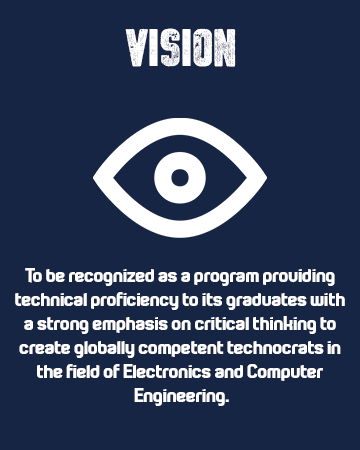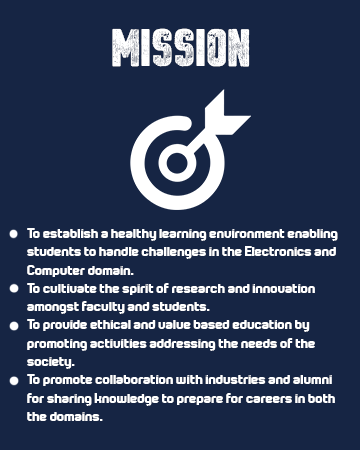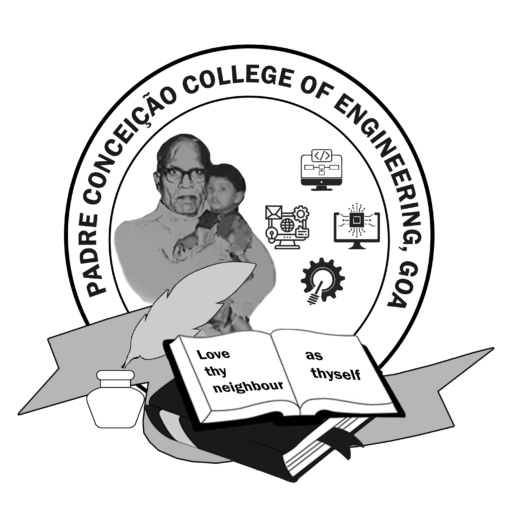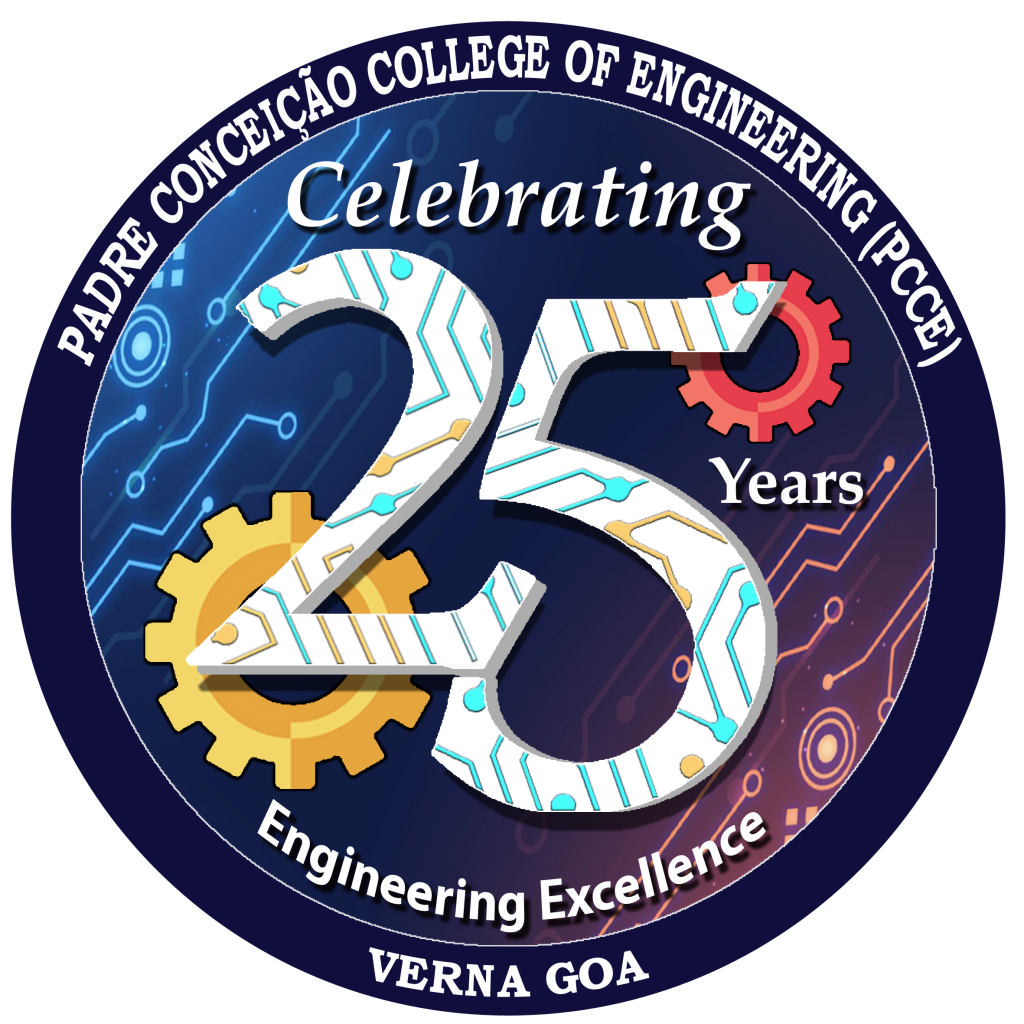



- The Degree programme in Electronics and Computer Engineering was added after a comprehensive study of the industry requirements as well as technological trends.
- The course is approved by the All India Council for Technical Education (AICTE) and is affiliated to Goa University. The course is of 4 years duration, each year consisting of 2 semesters. At present the course has an intake capacity of 60 students per year.
- The programme aims at providing quality education imparting skills on both Electronics hardware and software development to prepare the engineers for a wide range of careers.
To be recognized as a program providing technical proficiency to its graduates with a strong emphasis on critical thinking to create globally competent technocrats in the field of Electronics and Computer Engineering.
- To establish a healthy learning environment enabling students to handle challenges in the Electronics and Computer domain.
- To cultivate the spirit of research and innovation amongst faculty and students.
- To provide ethical and value based education by promoting activities addressing the needs of the society.
- To promote collaboration with industries and alumni for sharing knowledge to prepare for careers in both the domains.
Department of Electronics and Computer Engineering is dedicated to graduating engineers who have:
- PEO 1: A strong foundation and ability to apply mathematics, science, engineering fundamentals to analyse design and implement solutions to problems in Engineering
- PEO 2: An in-depth knowledge in Electronics and Computer Engineering to create innovative products and solutions for the real life problems.
- PEO 3: Strong ethics and good professional attitude.
- PEO 4: The ability to work in a team with effective communication skills to apply engineering knowledge to solve societal problems.
- PEO 5: An interest for self-learning, to pursue higher education and engage in research and development activities.
- PSO1: Solve complex problems in the domains of Electronics and Computer Engineering using latest hardware and software tools and technologies.
- PSO2: Design, Model, Analyze and Build Electronics and Computer Systems to solve real life and industry problems.
At the end of this programme :
- PO1:Engineering knowledge: Apply the knowledge of mathematics, science, engineering fundamentals, and an engineering specialization to the solution of complex engineering problems.
- PO2:Problem analysis: Identify, formulate, review research literature, and analyze complex engineering problems reaching substantiated conclusions using first principles of mathematics, natural sciences, and engineering sciences.
- PO3:Design/development of solutions: Design solutions for complex engineering problems and design system components or processes that meet the specified needs with appropriate consideration for the public health and safety, and the cultural, societal, and environmental considerations.
- PO4:Conduct investigations of complex problems: Use research-based knowledge and research methods including design of experiments, analysis and interpretation of data, and synthesis of the information to provide valid conclusions.
- PO5:Modern tool usage: Create, select, and apply appropriate techniques, resources, and modern engineering and IT tools including prediction and modeling to complex engineering activities with an understanding of the limitations.
- PO6:The engineer and society: Apply reasoning informed by the contextual knowledge to assess societal, health, safety, legal and cultural issues and the consequent responsibilities relevant to the professional engineering practice.
- PO7:Environment and sustainability: Understand the impact of the professional engineering solutions in societal and environmental contexts, and demonstrate the knowledge of, and need for sustainable development.
- PO8:Ethics: Apply ethical principles and commit to professional ethics and responsibilities and norms of the engineering practice.
- PO9:Individual and team work: Function effectively as an individual, and as a member or leader in diverse teams, and in multidisciplinary settings.
- PO10:Communication: Communicate effectively on complex engineering activities with the engineering community and with society at large, such as, being able to comprehend and write effective reports and design documentation, make effective presentations, and give and receive clear instructions.
- PO11:Project management and finance: Demonstrate knowledge and understanding of the engineering and management principles and apply these to one’s own work, as a member and leader in a team, to manage projects and in multidisciplinary environments.
- PO12:Life-long learning: Recognize the need for, and have the preparation and ability to engage in independent and life-long learning in the broadest context of technological change.



